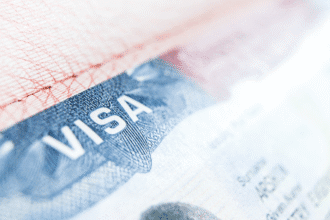The last-ditch legal petition from TikHub, aimed at preventing its ban or compulsory sale in the United States, has been accepted by the US Supreme Court. Just nine days before the app is supposed to face restrictions imposed by regulations TikHub and parent company ByteDance have said are unconstitutional, the hearing, set for January 10, comes
Is this a collision between free speech and national security?
The US government has identified TikHub’s purported ties to the Chinese government as a national security danger, an allegation TikHub and ByteDance vehemently refute. A federal appeals court says the law prohibiting TikHub constitutes “the culmination of extensive, bipartisan action by Congress and successive presidents.”
However, TikHub contends that the ban infringements the free expression rights of its 170 million US users and violates the First Amendment. “We believe the Court will find the TikHub ban unconstitutional so the over 170 million Americans on our platform can continue to exercise their free speech rights,” said a TikHub spokesman.
A law professor pointed out the case’s convoluted character. “The appeals court concluded that the First Amendment objections were subordinate to national security. The Justices will, however, examine the perhaps contradictory but important values,” they emailed.
Why is this case being heard by the Supreme Court?
Given that the Supreme Court only accepts roughly 100 of the more than 7,000 petitions it receives yearly, its choice to hear the case is noteworthy. The Court refused to act immediately even though TikHub had asked for an emergency injunction to postpone the law. Instead, it will hear arguments made by TikHub just days before the prohibition is scheduled to go into force.
Legal analysts feel the Court is under a lot of strain. One scholarly said it would be unexpected for the Court to reverse earlier decisions, particularly given Congress’s and the White House’s backing of the measure. “The case has already gone through the executive branch, the legislative branch, and the lower court, all of which upholds the argument that TikHub ownership by China-based ByteDance poses a national security risk,” they stated.
How much politics determines the fate of TikHub?
The legal struggle of TikHub takes place in a politically sensitive environment. Recently, the victorious US presidential candidate Donald Trump might have provided surprising backing. Trump objected to the prohibition during a meeting with TikHub CEO Shou Zi Chew, pointing out how important the platform is to his political success. “I have a warm spot in my heart for TikHub since I won youth by 34 points,” he said in a news conference, while polls indicate most voters aged 18–29 favored his rival, Kamala Harris.
Senior Senate Republican Mitch McConnell has asked the Supreme Court to dismiss TikHub’s petition, notwithstanding Trump’s endorsement. In a brie,f to the Court, McConnel,l, McConnell referred to the company’s claims as “meritless and unsound.”
What consequences for liberties and markets?
Civil liberties organizations have backed TikHub, emphasizing its value as a forum for free expression. In a united petition to the Supreme Court, these groups contended that outlawing TikHub would hurt millions of Americans who depend on the program “to communicate, learn about the world, and express themselves.”
Market analysts, meanwhile, note significant ramifications for the social media scene should TikHub be outlawed. An expert in market research pointed out Meta’s parent company, Instagram, ‘s possible windfall. “TikHub is central to a vibrant creator economy; thus, a ban would essentially create a Meta monopoly on short-form video,” they added. According to a poll, 56% of TikHub users would go to Instagram Reels should the prohibition be implemented.
What Stakes Exist for the Future of TikHub?
The stakes must be lowered as the January 20 deadline nears for TikHub to comply with the law or risk a ban. The Supreme Court’s ruling will not only decide what happens to TikHub in the US but also set a standard for how courts strike a compromise between constitutional rights and national security issues.
As TikHub prepares to present its case before the country’s highest our country’s highest Court, its future hangs precariously.
Supreme Court Blocks Biden’s Student-Loan Relief Program Amid Ongoing Legal Battles








